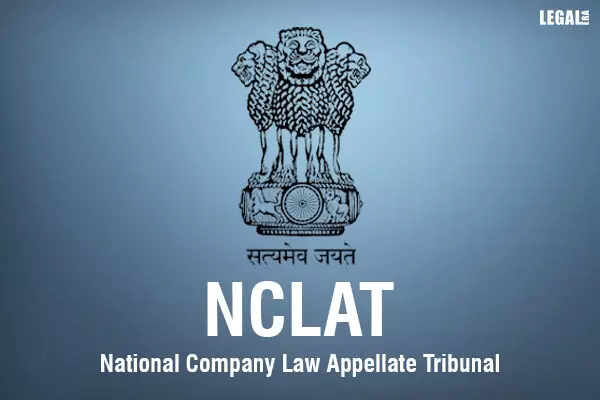- Home
- News
- Articles+
- Aerospace
- Agriculture
- Alternate Dispute Resolution
- Banking and Finance
- Bankruptcy
- Book Review
- Bribery & Corruption
- Commercial Litigation
- Competition Law
- Conference Reports
- Consumer Products
- Contract
- Corporate Governance
- Corporate Law
- Covid-19
- Cryptocurrency
- Cybersecurity
- Data Protection
- Defence
- Digital Economy
- E-commerce
- Employment Law
- Energy and Natural Resources
- Entertainment and Sports Law
- Environmental Law
- FDI
- Food and Beverage
- Health Care
- IBC Diaries
- Insurance Law
- Intellectual Property
- International Law
- Know the Law
- Labour Laws
- Litigation
- Litigation Funding
- Manufacturing
- Mergers & Acquisitions
- NFTs
- Privacy
- Private Equity
- Project Finance
- Real Estate
- Risk and Compliance
- Technology Media and Telecom
- Tributes
- Zoom In
- Take On Board
- In Focus
- Law & Policy and Regulation
- IP & Tech Era
- Viewpoint
- Arbitration & Mediation
- Tax
- Student Corner
- AI
- ESG
- Gaming
- Inclusion & Diversity
- Law Firms
- In-House
- Rankings
- E-Magazine
- Legal Era TV
- Events
- News
- Articles
- Aerospace
- Agriculture
- Alternate Dispute Resolution
- Banking and Finance
- Bankruptcy
- Book Review
- Bribery & Corruption
- Commercial Litigation
- Competition Law
- Conference Reports
- Consumer Products
- Contract
- Corporate Governance
- Corporate Law
- Covid-19
- Cryptocurrency
- Cybersecurity
- Data Protection
- Defence
- Digital Economy
- E-commerce
- Employment Law
- Energy and Natural Resources
- Entertainment and Sports Law
- Environmental Law
- FDI
- Food and Beverage
- Health Care
- IBC Diaries
- Insurance Law
- Intellectual Property
- International Law
- Know the Law
- Labour Laws
- Litigation
- Litigation Funding
- Manufacturing
- Mergers & Acquisitions
- NFTs
- Privacy
- Private Equity
- Project Finance
- Real Estate
- Risk and Compliance
- Technology Media and Telecom
- Tributes
- Zoom In
- Take On Board
- In Focus
- Law & Policy and Regulation
- IP & Tech Era
- Viewpoint
- Arbitration & Mediation
- Tax
- Student Corner
- AI
- ESG
- Gaming
- Inclusion & Diversity
- Law Firms
- In-House
- Rankings
- E-Magazine
- Legal Era TV
- Events
NCLAT: When Balance Sheet of Corporate Debtor Declared Amount as Unsecured Loan, Same Cannot be Accepted as ‘Investment’

NCLAT: When Balance Sheet of Corporate Debtor Declared Amount as Unsecured Loan, Same Cannot be Accepted as ‘Investment’
The National Company Law Appellate Tribunal (NCLAT), Delhi by its coram comprising of Justice Ashok Bhushan (Judicial Member) and Mr. Barun Mitra (Technical Member) observed that, when Balance Sheet of Corporate Debtor has mentioned the amount as unsecured loan, the argument cannot be accepted that it was not a loan and it was an investment.
In the present case, an appeal was filed against order dated 2 March, 2023 passed by the Adjudicating Authority by which order Section 7 application filed by the Financial Creditor was admitted.
The Financial Creditor filed application under Section 7 of the Insolvency and Bankruptcy Code, 2016, for a Principal Amount of Rs. 1.80 crores. The application was filed in the year 2020. Notices were issued to the Corporate Debtor. Affidavit of service was filed but none appeared for the Corporate Debtor.
The Adjudicating Authority proceeded to hear the application and admitted the Section 7 application. The Financial Creditor relied on the Balance Sheet of the Corporate Debtor, where the amount was shown as unsecured loan. Relying on the said statement, the Adjudicating Authority directed for admission of the application.
Learned counsel for the Appellant submitted that in fact the amount was only investment and there was no loan and the same mistaken in the Balance Sheet of the Corporate Debtor. Learned counsel for the Appellant referred to the lawyer’s notice dated 15 May, 2019, which was issued on behalf of the Financial Creditor.
However, the NCLAT held that, when the Balance Sheet of the Corporate Debtor has mentioned the amount as unsecured loan, the argument of the Appellant cannot be accepted that it was not loan and it was investment.
In the application which was filed by the Financial Creditor, although no reference of written agreement was mentioned, it was pleaded that amount was to be refunded with interest.
Thus, the bench held that no error had been committed by the Adjudicating Authority in admitting Section 7 application and accordingly, the appeal was dismissed.


